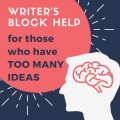10 Steps To Creating A Great Article, An Experienced Writer's Guide
Writers Guide For Creating A Great Article

An Experienced Writers Guide
Writing Steps And Working From The Outlined Draft
Writing great articles comes down to a couple of important factors, the subject ,because without a subject the article will fall to bits or not even materialize, so a good draft is essential to plan and work from.
Your job as a writer is to extract information from research and studies elsewhere and present it to an audience who wants to read that information, this information within the article body has to be useful to your target audience and of a professional calibre that involves the reader to take action or feel motivated in some way.
Although the above examples are mainly from a marketing point of view, but having an end view of where your readers will go after they have read your articles is such an excellent plan of action and will stand you in good stead for your next wave of action, which is creating more article content which is in fact what your readers want to see more of.
An article can be topical from the latest news broken down into several bite sized chunks to a more specific product review that tells a story of how you found the product, and what you liked about it, articles can be anything and everything all rolled into one.
Typically, the most common route of article writing can be derived from a generic profession or hobby or interest that any author can gain credibility for if they provide accurate content and useful content that are to be beneficial to the reader. Many just pick a topic and run with it until they have explored all they can under sub topics and specific article titles.
Sometimes though the best writers never stop they carry on through such concepts as research and networking with other people who share their interest for the content they write, sometimes other insights account for the creative inspiration and motivation that occur once someone who reads and responds to your articles, and you do the same with their writing.
The types of articles you can write are potentially endless only by your own limitations and writing different ways enhances your readers reading experience too. Therefore, your content could focus on any angle, such as:
- Fact based news.
- Step by step, tutorial
- In depth reviews
- A day in the life
- A niche focused event.
- A debate
- A question and answers
- A personal story
- A fictional story
- An announcement or update.
- A controversial rant - which could be serious or crazily hilarious
The list is never ending when you think of writing articles in lots of varying ways, the trick is to find a balance for each article you write.
Now on to the matter at hand.
Writing Great Articles

Writing Books With Tips For Authors Who Need Them
10 Steps To Writing A Great Article
The steps needed to create a good quality content article that delivers for your targeted audience are intended as a template for a good starting point, one that you should carry with you on each separate article that you will create in the future.
Number One - Always have a good brainstorming session thing going on
Start off with words related to the theme on what you want to write about, then when you have exhausted that, write lists of as many titles as you can or even sentences as this will help you form some good content later on out of your brainstorm notes.
The fact of the matter is without any draft process you won't gain an understanding of what content and sub topics work for each particular article and plus the brainstorming session helps you to focus more on one type of article topic rather than go off on a ramble of several strung out subjects all in one incoherent mess.
To be focused in an article is to direct your reader, to lead them through the introduction which holds their hand right through to the body of the article and then the conclusion of the informative written content, the reader wants to be assured that their reading time has been well spent by an effort of a decent article that has been researched and planned out well beforehand.
Number Two - Draw on personal experiences to involve the reader
Everyone has a story or a book inside them, even more so a personal story that relates to the article that they have planned and that is a good idea to include this at the start of an article, this draws the reader in, especially if it is a situation that is identifiable and you show how you overcame it with a solution of some sort.
So at the start of the article you begin by talking about yourself and your own personal battle, dilemma, or problem that you had, then somewhere in the middle you are quite sneaky, the focus is changing hands and you end up writing about the solutions you used to overcome the obstacle and how this could benefit the reader, so at the conclusion of the article your main focus is on the reader and how they are going to respond or react.
Most online articles are a good bet that they are a lead in to click on a link, whether you want someone to visit your blog, website or buy from your toe nail clipping auction business!!
Number Three - Titles make readers want to read
Some of the best titles are the tried and tested ones, the creatively unique ones and the downright keyword specific.
Take a good look around on the Internet, sites like Digg, Stumbleupon and even here on Hub pages, the titles are probably the first thing people scan with their ever searching eyes, they want to find categorized information, then a title that jumps out at them.
Titles that include the following are all likely successful titles;
- Lists - 5 top ways, 10 of the best.
- A tantalizing question - readers must find out the answer to the question.
- Product review - Specific make, model, serial number.
- Popular topics - With something new to say or promised in the title.
Looking offline also helps you understand the mechanics of a title at work, newspapers are the top offline choice that is easily accessible to study article titles that work, sometimes the titles are more direct stating what the news item is about, whereas others are more diverse and mislead just to get you to read.
The use of puns and other gimmicks can be quite effective and witty so never think it could be silly to use a clever pun every now and again.
Magazines work the same way, so set some time aside to think clearly about what the title will do to make someone read on all of your articles.
Number Four - Multiple Articles One Niche
Having one article that helps people is great and all but what if you had multiple articles on the same topic, sort of like you start off with an article about "dressing the perfect salad" then a possible next article could be about tossing (steady now!) a good salad. By doing things this way you are increasing your value as an authority on whatever subject you write about.
This becomes especially useful when you have an information website or weblog that you can create sub topics under the main headline topic, this is a good way of keeping people on your site for longer and reading almost everything you've written, stickiness on a website is important for people to stay awhile to assess whether they will become repeat visitors when you write more content.
Like I said your credibility shows through in your articles and this is the most important aspect of building your brand as an authority author.
Take what you found out in your brainstorming research to find sub topic article ideas, the more you have, the bigger content resource you will be able to provide and build on.
Number Five - The Structure of your article
The article cannot be one lumped together mass of words and you cannot assume that people will read your article if it was like that. Instead try to break up your article into small paragraphs and highlight important parts with bolded and underlined text, this helps the reader easily manage to read the actual article, because it looks easy on the eyes.
Bullet pointswork quite well online in long content when you need to have a break between the paragraphs and plus this is great for a list of important points that need to be displayed this way. What I see a lot of bloggers and webmasters do with bullet point lists is they make each important bullet point as a link to mainly other articles they have written, which in turn brings us back to the sticky notion of lots of good content.
Also the flow of an article is important too, you can't have a jumble of sub topics all out of sync if they are supposed to be written in order of relevance for your readers, for example if you were to write about "how to build a website" you would not write about creating your last page first, because that's just out of order and illogical.
Instead you would just create the home page and all the other pages from left to right or top to bottom and write in chronological order the steps you take.
Number Six - Stuck for content - research the web in forums and other articles
Sometimes even the most skillful of writers needs to flex their research skills to get some more meaty content, forums are a great way to interact with others who may seem more knowledgeable than you. Experts hang around the forums to show their skills of wisdom it gives them an ego boost at times when they know they have written replies to others questions that solves a problem.
Although scanning the forums and discussion boards takes some skill in itself to locate these nuggets of information that can be applied to your articles, it is well worth doing in one sitting rather than attempting to study forum posts in between article editing or some other writing task.
The same can be said of Google Scholar which has lots of student inspired research notes and papers that are some quality reading if you can understand more technical terms and big words you may not have heard of before, in fact Google has dedicated it's services towards providing the average web surfer the options of locating articles,blogs, products, books, videos and images to be picked apart and dissected by simply clicking on links.
Researching specific information takes time, so always make sure you are actively doing something that will eventually help with the long term task of creating new content regularly.
Number Seven - A well edited article makes all the difference
Spelling and grammar look not only professional, they make you look a pro too, as the content and the author combined make a brand, one that will either fail or be highly successful.
Taking the time to edit your articles is a worthy cause, to do this yourself or have someone else do it, no matter what you decide to do, an editors job is an important one. If you are a blogger you might be able to get away with slight grammar errors, because of the community based interaction and just the simple fact of expressing new and spontaneous ideas.
So long as the content reads right and there is minimal spelling mistakes and grammatical errors then this is fine, we are only human and some mistakes can be made.
(Side note- Grammatical errors presented within this article are strictly at the article authors discretion as he did not like school that much and besides he was sick that day they was dishing out grammar lessons!)
Number Eight - Responding positively to criticism about your writing
Comments, remarks, critics, fly by visitors all are going to either comment about your article subject or they might contact you by email about what you have written. Some may respond in a positive light, most do, but even if you get a negative comment it's best to take on board all types of comments.
This helps you understand things about your work what worked well and what didn't, most people may tell you they liked this part of the article, because and they may give a valid reason, but on the negative side they may just say your article plopped like a huge turd and not give any reason which is not particularly helpful, so I always try to email these people and determine why they thought it was chunk hurling puke, if they don't respond then I move on, after all there are better things to be more concerned about like new content and the economic crisis boo hoo!
Number Nine - The things people say
More often than not I am inspired by the things that people say and these are the starting points of new articles, crazy statements that are blunt and to the point to off the wall comments of loud conversations are the usual article starters of my future content empire.
"Different minds think alike and uninspired minds ride a trike."
As I go about my daily routines out and about I hear all types of characters who say the most stupidest or funniest phrases that I chuckle, and maybe I look like a crazy fool grinning to myself, I don't care, I've just archived original content and will use it on a rainy day.
Recording peoples conversations might be bordering on the extreme, so just try to be nosy on strangers conversations regardless, on a bus, walking down the street, in a bar, wherever, some people like to hear the sounds of their own voice so why not immortalize a turn of phrase as an article title or an article introduction.
Number Ten - Being Controversial could work
A controversial element to your articles every now and then could work wonders for reader response and interesting debate, I've seen it time and time again on many websites, forums or discussion boards were someone writes a rant about something which could probably be their own thought out opinion that actually draws readers in to comment and react to the one sided article.
Blogs are the most common platform for this way of bringing in commenters even from the most socially deprived lurkers on the Internet, the title makes a connection with the readers mind saying whoa! wait a minute what's this guy or gal been drinking I have to comment and say my piece.
Being controversial can work in your favour or put you in a negative light, so use it sparingly on an opinion you totally feel strongly about, that way you can't be swayed to the dark side of someone else's way of thinking.
So at the end of the day writing should be what you love to do and knocking that new article out should make you feel like you've achieved something in the process.
Further reading - 77 Writing Tips in easy to read list format







